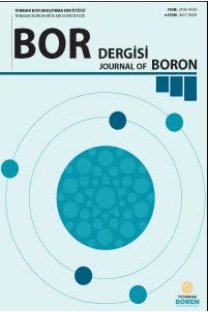AA2014/B4C MMK yapının döküm ve döküm sonrası sinterleme işlemleri ile üretiminin aşınma davranışlarına etkileri
Bu çalışmada, döküm yöntemi ve döküm sonrası 600°C’de 2 saat sinterleme uygulanarak,%10/20 B4C takviyeli ve AA2014 matris yapılı kompozit malzemeler üretilmiştir.Döküm yöntemi ile üretilen numunelere, sinterleme ve takviye oranlarının aşınma davranışlarınaetkileri incelenmiştir. Çalışmada mikroyapı incelemeleri amaçlı; Taramalıelektron mikroskobu (SEM), Element Dağılım Spektrometresi (EDS) ve X-Ray incelemeleriyapılmıştır. Sertlik sonuçları için HV1 yöntemi ile makro sertlik verileri alınmıştır.Aşınma işlemi için pin-on-disk tipi kuru aşınma cihazında, 0.5MPa basınç altında,1 ms-1 kayma hızında ve dört farklı kayma mesafesindeki veriler kullanılmıştır. ArtanB4C takviye oranı ve sinterleme işlemleri sonrasında sertlik artmış, sürtünme katsayısıdüşmüş ve aşınma kaybı azalmıştır. En düşük sürtünme katsayısı ve aşınma kaybı600 °C’de 2 saat sinterlenen %20 B4C içeren numunede elde edilmiştir.
Effects of the AA2014/B4C MMCs production with casting and post casting sintering operations on wear behaviors
In the study, AA2014 matrix and 10/20% B4C reinforced composites structure have been produced by casting and casting + sintering processes (at 600 °C for 2 hours). The effects of sintering and reinforcement ratios on wear behavior of specimens have been investigated after casting. For investigation of the microstructure studies; Scanning Electron Microscopy (SEM), Element Distribution Spectrometer (EDS) and X-ray studies have been performed. Macro hardness data have been obtained by HV1 method. For wear tests, pin-on-disc type dry abrasion device has been used at a pressure of 0.5 MPa, a sliding speed of 1 ms-1 and at four different slip distances. After sintering and increasing the B4C reinforcement ratio, the hardness values increased, the friction coefficient decreased and the wear loss decreased. The lowest coefficient of friction and loss of wear have been obtained with the sample containing of 20% B4C sintered at 600 °C for 2 hours.
___
- Aksöz S., Bostan B., Effects of Ageing and Cryoageing Treatments on Microstructure and Hardness Properties of AA2014–SiC MMCs, Trans Indian Inst Met., https://doi.org/10.1007/s12666-018-1336-6 (Accepted).
- Ovalı D., Ağaoğulları D., Gökçe H., Öveçoğlu M.L., Effect of tungsten disilicide addition on tungsten boride based composites produced by milling-assisted pressureless sintering, BORON 3 (1), 42 - 50, 2018.
- Özer A., The microstructures and mechanical properties of Al-15Si-2.5Cu-0.5Mg/(wt%)B4C composites produced through hot pressing technique and subjected to hot extrusion, Mater. Chem. Phys., 183, 288-296, 2016.
- Demir Ü., Güral A., Öztürk M.K., Eşit kanallı açısal preslenmiş toz halde Al-%5Ni alaşımının mikro yapısal karakterizasyonu, J. Fac. Eng. Archit. Gaz., 32 (3), 685-692, 2017.
- Ovali İ., Karakoç H., Çinici H., Optimization of the wear resistance of AA2024 matrix composites fabricated with hot pressing, J. Achiev. Mater. Manuf. Eng., 79 (1), 19-23, 2016.
- Yıldırım M., Şimşek İ., Özyürek D., Yaşlandırılmış AA7075 Alaşımında Solüsyona Alma Sıcaklığının Aşınma Performansına Etkisinin İncelenmesi, GU. J. Sci., Part C, 6 (1), 233-239, 2018
- Taşkesen A., Aksöz S., Özdemir A. T., The effect of cryogenic treatment on ageing behaviour of B4C reinforced 7075 aluminium composites, Kovove Mater., 55, 57–67, 2017.
- Balcı Ö., Akçamlı N., Ağaoğulları D., Öveçoğlu M. L., Duman İ., Otoklavda sentezlenen ZrB2 -ZrO2 tozlarının farklı tekniklerle sinterlenmesi ve yığın yapıların mikroyapısal ve bazı mekanik özelliklerinin incelenmesi, BORON 2 (1), 1 - 10, 2017.
- Kerti I., Toptan F., Microstructural variations in cast B4C-reinforced aluminium matrix composites (AMCs), Mater Lett., 62, 1215-1218, 2008.
- Shorowordi K. M., Laoui T., Haseeb A. S. M. A., Celis J. P., Froyen L., Microstructure and interface characteristics of B4C, SiC and Al2O3 reinforced Al matrix composites: a comparative study, J. Mater. Process. Technol., 142: 738-743, 2003.
- Varol T., Canakci A., Synthesis and characterization of nanocrystalline Al 2024– B4C composite powders by mechanical alloying, Philos. Mag. Lett., 93 (6,) 339– 345, 2013
- Canakci A., Ö zşahin S., Varol T., Prediction of Effect of Reinforcement Size and Volume Fraction on the AbrasiveWear Behavior of AA2014/B4Cp MMCs Using Artificial Neural Network, Arab. J. Sci. Eng., 39, 6351– 6361, 2014.
- Lee B.-S., Kang S., Low-temperature processing of B4C–Al composites via infiltration technique, Mater. Chem. Phys., 67, 249-255, 2001.
- Deuis R. L., Subramanian C., Yellup J. M., Abrasive wear of aluminium composites - a review, Wear, 20, 132–144, 1996.
- Waterloo G., Hansen V., Gjønnes J., Skjervold S.R., Effect of predeformation and preaging at room temperature in Al–Zn–Mg–(Cu, Zr) alloys, Mater. Sci. Eng. A, 303, 226–233, 2001.
- Baradeswaran A., Perumal A.E., Influence of B4C on the tribological and mechanical properties of Al 7075– B4C composites, Composites: Part B, 54,146–152, 2013.
- Yılmaz R., Özyürek D., Kibar E., The effect of retrogression parameters on hardness and wear behaviors of 7075 aluminum alloys, J. Fac. Eng. Archit. Gaz., 27 (2), 429-438, 2012.
- Qi W. X., Tu J. P., Liu F., Yang Y. Z., Wang N. Y., H. Lu M., Zhang X. B., Guo S. Y., Liu M. S., Microstructure and tribological behavior of a peak aged Cu-Cr-Zr alloy, Mater. Sci. Eng., A, 343 (1), 89-96, 2003.
- Tu J. P., Meng L. and Liu M. S., Friction and wear behavior of Cu-Fe3Al powder metallurgical composites in dry sliding, Wear, 220 (1), 72-79, 1998.
- ISSN: 2149-9020
- Yayın Aralığı: Yılda 4 Sayı
- Başlangıç: 2016
- Yayıncı: TENMAK Bor Araştırma Enstitüsü
Sayıdaki Diğer Makaleler
Ahmet YARTAŞI, Tuba Hatice DOĞAN
Tuba ÖZDEMİR, Ali Ünsal KESKİNER
Tuba Hatice DOĞAN, Ahmet YARTAŞI
Dry sliding behaviour of boron waste reinforced epoxy matrix composites
Nurcan ÇALIŞ AÇIKBAŞ, Bilge YAMAN
Selim UYSAL, Jed CAPPELLAZZİ, Jeffrey MORRELL
Experimental and DFT calculation studies on boric acid and salicylic acidboric acid-ethanol solution
Tuba ÖZDEMİR ÖGE, Ali Ünsal KESKİNER
ÜLEKSİT VE BORAKS İÇEREN FREN SÜRTÜNME MALZEMELERİNİN TRİBOLOJİK ÖZELLİKLERİ
